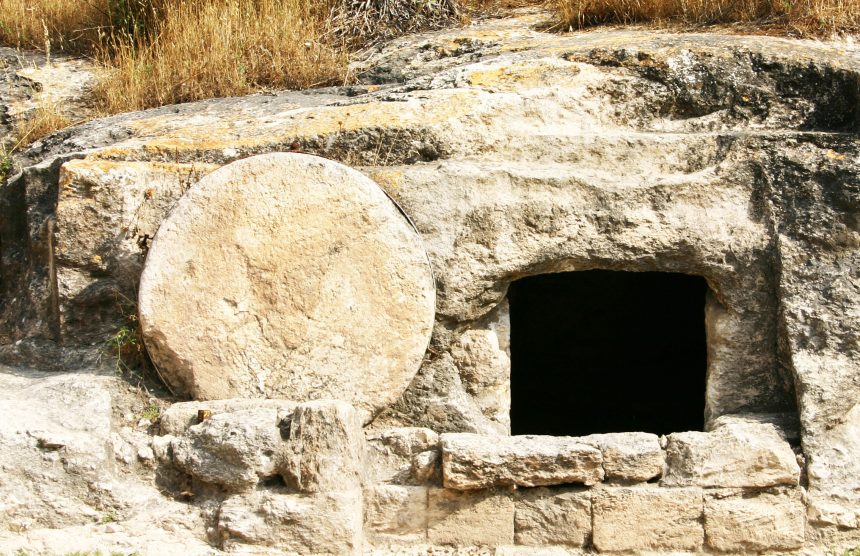John 11:1-45 NIV
Jesus appeared composed as He approached the edge of town. Martha, the sister of his dead friend, Lazarus, rushed to meet Him. When her sister, Mary, reached the place where Jesus was, she fell at His feet and said, “Lord, if you had been here, my brother would not have died.” When Jesus saw her weeping, and the Jews who had come along with her also weeping, He was deeply moved in spirit and troubled. “Where have you laid him?” he asked. “Come and see, Lord,” they replied. Then we read that profound sentence: Jesus wept (John 11: 32-35).
“Jesus wept.” Two simple words that carry a world of significance. John 11:35 is the shortest verse in all the Bible, but it is one of the most powerful because it provides an intimate glimpse into the character of the Creator.
Many depictions of Jesus portray Him as One who calmly and collectedly floats above the grit and grime of human existence. But the Scriptures tell a different story. It is the story of a God who grieves. Once on a hill overlooking Jerusalem He wept for the nation. On the way to His friend’s grave, He weeps for those who mourn. That is the Messiah, weeping not just for us in our sin, but with us in our suffering. It is astonishing that our condition could trouble His spirit; that our pain could invoke His tears.
Jesus experienced human emotions. “A man of sorrows,” the prophet foretold, “and acquainted with grief” (Isa. 53:3). God Himself has taken on our humanity in the person of Jesus, and with it, our feelings. We are finite and frail, but our emotions are compelling. We celebrate. We grieve. We rejoice, and we weep. And so did the Messiah.
John 11, verse 5, makes it clear that “Jesus loved Martha, her sister Mary, and Lazarus.” His tears were not because He lacked faith. It wasn’t that Jesus didn’t know that Lazarus was sick; his death was not news, and yet coming into the community, entering into the presence of those who were actively grieving, Jesus felt their grief. He felt His own and expressed it. He was “deeply moved,” as the writer of John’s Gospel put it. He embodied the emotions and expressed them in honest, straightforward, and life–giving ways. But His tears are not solely rooted in love. He has righteous anger at death and unbelief. John says that He is “deeply moved in His spirit and greatly troubled.” He is indignant and disturbed. He is standing face to face with death, and He knows what it will take to overcome it. This time He will wake Lazarus, but in time, He will lay down his own life.
The love expressed in verses 5 and 36, and the outrage of verse 33, lead to the tears of verse 35. Because He loved, and because He stared death in the face, He burst into tears. The people had been crying, but Jesus wept. Grief and belief in the resurrection are not an either-or proposition. Jesus shows us that they are both, and we can feel the sorrow and the pain of loss and have deep abiding faith.
Jesus knew that Lazarus would rise again, and yet He wept. And in those tears, we see a God who draws near. He has not called us to a world He was unwilling to enter. We suffer no pain He is reluctant to bear, and we have no grief that He is unwilling to carry. The very heart of the message is that our joyful God so loved our weeping world that He gave His own Son to weep with us, that whosoever believes in Him will not weep forever but have everlasting joy. The one who wipes away every tear has shed His own.
When we wrestle with circumstances beyond our control, when suffering and grief pin us to the cold hard ground, we can follow the trail of Jesus’ tears in the sweetest fellowship of suffering. Because embracing pain does not negate our faith. We can lean into the sorrow of a moment and still, with great hope, enjoy the coming resurrection. The raising of Lazarus is an amazing moment. It reveals that Jesus was who He said He was—the resurrection and the life. But it reveals something else—the tears of God. And who is to say which is more profound—a man who raises the dead, or a God who weeps?

